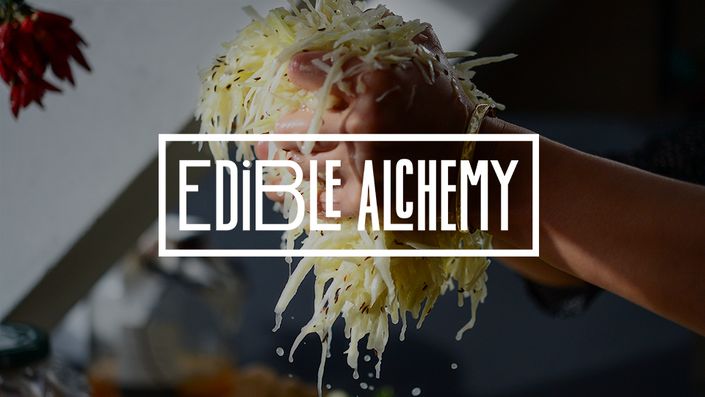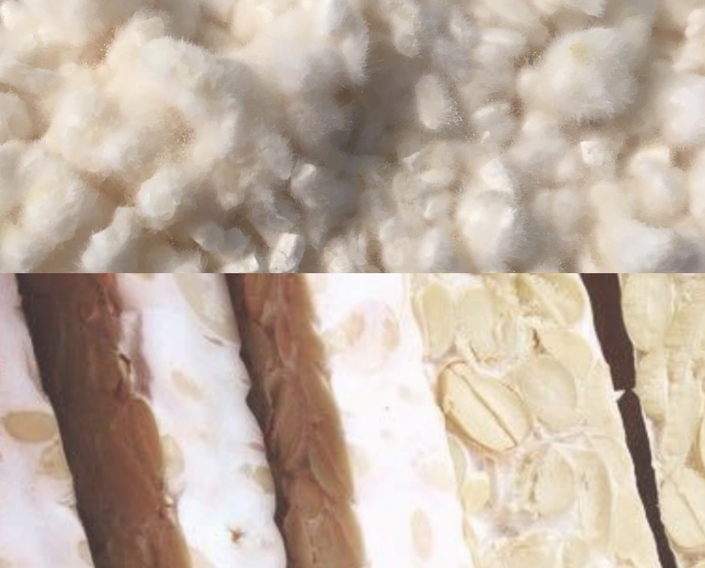
Probiotic Foods - Full Course
Boost your Immune System with Probiotic Foods
Intro Video Enroll in Course
80% of your immune system is in your gut.[1]
A diverse microbiome protects you from infections and viruses.
Our immune cells are trained against viruses in the gut. When these viruses are discovered elsewhere in the body, it can send the fitting immune cells.
Apart from this direct defensive mechanism there is another way in which a healthy gut microbiome protects us from infections. It is called colonization resistance.[2] If our gut is already colonized with a diverse microbiome, viruses simply can not get a hold. Sorry, no vacancies!
Build up the diversity in your microbiome. You are what you eat!
The microbiome - often called the "second brain" - is a collection of ideally helpful bacteria in our digestive system that protects us from harm. It acts as our internal police that fights off bad bacteria and other kinds of intruders and keeps our system in balance.
Modern western lifestyle sadly often brings with it processed industrial food, an unvaried diet and low nutrients. The result is a corespondingly low gut flora. Poor in quantity and quality.
A healthy microbiome helps our body to digest food and increase nutrient absorption - thus making us feel healthier and more energized.
Use that time at home to start fermentation projects, avoid food waste through CO2 neutral food preservation, and create exciting umami tastes.
Pleasure & Probiotics = Healthy Immune System :)
[1] Enders (2014): Darm mit Charme, p. 160f
[2] Trevor Lawley and Alan Walker, "Intestinal colonization resistance", Immunology, volume 38, pages 1-11, 2013 (from wikipedia)

Probiotic Foods - Full Course
Boost your Immune System with Probiotic Foods
Intro Video Enroll in CourseCourse Curriculum
-
PreviewWhat is the Microbiome and Why Should You Care? (3:36)
-
PreviewFermentation - What is it and why should you care (2:20)
-
PreviewAdding probiotics to meal ideas
-
StartWhy our Gut is so Important
-
StartAerobic Vs Anaerobic Fermentation (1:50)
-
PreviewMaking Smart Food Combinations (1:21)
-
StartSALT (0:47)
-
StartDiversity is key
-
StartIntroduction to Vegetable Fermentation (0:49)
-
StartBenefits of Lacto Fermentation (1:35)
-
StartThe Bacterial Succession Explained
-
StartFood as a Medicine
-
StartTutorial - Mixed & Massaged Technique (24:00)
-
StartGolden Kraut - Mixed & Massaged
-
StartPinkchi (2:10)
-
StartTutorial - How to make Brined Veggies (14:09)
-
StartProbiotic Bean Dip / Hummus (0:56)
-
StartTutorial - How to make a Dry Ferment (7:31)
-
StartTutorial - How to make Hot Sauce & Backslopping (7:58)
-
StartLacto Fermented Chutney
-
StartPreserved Lemons & Probiotic Salad Dressing Ideas (0:30)
-
PreviewWild Garlic Pesto with Salted Lemons
-
PreviewSpoilage & Safety (1:04)
-
StartFAQ - white stuff on ferment?
-
PreviewSalted Oranges
-
StartPickles and Tricks to keep them crunchy (0:56)
-
StartPickling vs Fermenting (1:11)
-
StartProbiotic Pickled Eggs
-
StartUrban Foraging Pickles & Ferments (1:58)
-
StartFermented Watermelon Rinds (0:43)
-
StartKraut Weights (0:50)
-
StartBlue Garlic - good or bad? (0:35)
-
StartBackslopping (0:56)
-
StartReferral
-
StartFermented Onions (1:06)
Courses Included with Purchase


Original Price: $50
Get started now!
Your Instructor

Alexis first stepped into the world of fermentation in Mozambique. Her stomach was struggling to cope with all the foods her body was not accustomed to. Locals urged her to place her trust in fermented corn drink, called Maheu, claiming it would help her digestive system acclimatize to the foreign bacteria. Always open to try new things, she took their advice and realized that there was more to this sour, tangy drink than she thought. Eight years later, she’s travelled to 43 countries and counting and her gut’s microbiome is the core of her calling. She has collected techniques, understandings and the bacteria and yeasts themselves in order to share the traditional practices of fermentation through interactive workshops, webinars, and online courses. Alexis has studied gut-health and explains the link of the gut-brain connection through the use of fermented foods. She gets her participants to relook at the good old saying 'you are what you eat' (or rather 'you are what you digest') as well as 'follow your gut feeling'.
Why Edible Alchemy?
Edible - you can eat it, and Alchemy - the same philosophy as the alchemists; turning normal things into gold! Here at Edible Alchemy, we change basic foods into more valuable foods. For example, fermented foods are more valuable in their taste. Think of how a normal cabbage can turn into a rich sauerkraut or kimchi. Fermented foods are also more valuable in the amount of time they can last and can be even stabler than their raw ingredients. Aged cheddar anyone? Depending if you are making of buying ferments, we can see fermented foods also are simply more valuable in terms of price in most cases, such as a bunch of grapes that ferment into a bold, round wine. Depending on your desired outcomes, fermented foods can have an appreciable amount of alcohol, which if that is your goal, they too become valued in these qualities. lastly, but not at all least, fermented foods are valuable in nutritional benefit for our bodies!
Fermented foods are nutrient dense foods, which means PACKED with vitamins, nutrients and often with probiotics which help us breakdown our foods better, gain energy, strengthen our immune systems and better our digestions. That's only the tip of the iceberg here. Check out more throughout the courses we have here and see what tantalizes your tastebuds and makes your microbiome (your internal fermentation vessel) get excited and happy!
